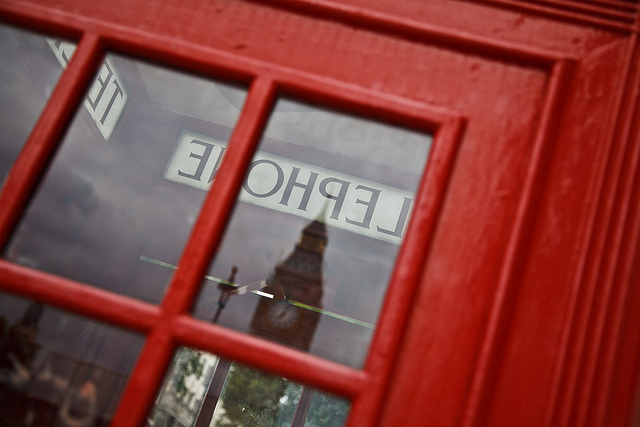Constitutional issues look set to only have a marginal influence on the General Election, at least in England
The referendum on Scottish independence held in late September of last year brought constitutional issues to the fore of the political debate on both sides of the border, with Westminster parties seeming to agree that the proposals of the Smith Commission should be implemented sooner rather than later. Paul Cairney argues that despite this newfound focus on issues of power and democracy, constitutional issues do not look set to feature heavily in the General Election later this year.

Credit; Tiago Pereira, CC BY NC 2.0
From the vantage point of Scotland, you would expect constitutional issues to dominate the UK General Election. The famous ‘vow’ almost ensured its place in the debate, because the idea was that each political party would engage in the Smith Commission and include its recommendations in their party manifestos.
Although the SNP was one of the least satisfied parties, it has already begun to campaign on the idea that the others might drag their feet come election time. Yet, it seems inevitable that all of the main parties will include something very close to the Smith recommendations. Indeed, Scottish Labour argues that one part of it (devolving the licenses to ‘frack’) can be done now, with an amendment to the current Infrastructure Bill at Westminster.
We have also seen some opening exchanges that show how much the constitutional question is in the minds of Scottish politicians. Most notably, Jim Murphy’s apparent promise, to use the proceeds of the UK ‘mansion tax’ to fund 1,000 more nurses than the SNP would promise, has raised issues about the extent to which people can make meaningful promises for devolved areas in UK elections, and the role of the Barnett formula, since the promise depends on a UK Labour government in 2015 using the money on health (or another fully devolved area) and a Scottish Labour government in 2016 using the Barnett consequentials to fund more nurses.
This is the normal routine in Scottish elections, where parties tend to drape themselves in the Scottish flag and fall over themselves to show that they are standing up for Scotland. It is not yet the norm in England, although there are early signs that things are changing. Murphy’s claim was met with predictable opposition from Boris Johnson, who claimed that it represented a tax on London to pay for services in Scotland. It was less predictable that some Labour MPs would agree so publicly (unless you buy into the idea that the internal Labour debate was manufactured).
This short-lived debate shows the potential for a new dynamic that we saw developing during the independence referendum campaign: the so called English backlash, built on the idea that an increasing number of people in England feel that Scotland has a disproportionate advantage in the Union and that it is time to stand up for England’s interests (also note the longer, and largely justifiable, sense in Wales that it does far less well from the current arrangements than Scotland).
Whether or not people feel this way might be less important than the political capital that parties can gain from the claim. Particularly since the rise of UKIP, it has become more tempting to refer specifically to interests in England, to push back against Scottish claims for more powers, and/or to seek assurances that there will be some sort of equivalent move in England (currently, the periodic focus is English Votes for English Laws). However, I doubt these issues will dominate the election in England. In the UK as a whole, Scotland may have disproportionate influence, or receive disproportionate attention, but it is still small beer.
—
Note: this post originally appeared on Paul Cairney’s personal blog. It represents the views of the author and not those of Democratic Audit UK or the LSE. Please read our comments policy before posting.
—
 Paul Cairney is Professor of Politics at Stirling University.
Paul Cairney is Professor of Politics at Stirling University.





 Democratic Audit's core funding is provided by the Joseph Rowntree Charitable Trust. Additional funding is provided by the London School of Economics.
Democratic Audit's core funding is provided by the Joseph Rowntree Charitable Trust. Additional funding is provided by the London School of Economics.
relogio diesel 5 bar
Exceto por prescrição médica, é claro.
rolex de ouro
Hoje, você pode obter o seu faciais feito no spa, mas você também pode fazê-los em casa com uma máquina de qualidade.
Constitutional issues look set to only have a marginal influence on the … – Democratic Audit UK: De… https://t.co/lmcjk01V3C #indyref
Constitution to play a ltd role in #GE2015 says @CairneyPaul – is this still true after Ed’s 100 days pledge? https://t.co/nYxgeoG5Jt
Constitutional issues look set to only have a marginal influence on the General Election, at least in England https://t.co/0vjJQVAYvB
Constitutional issues look set to only have a marginal influence on the General Election, at least in England https://t.co/5YRoV99KcP